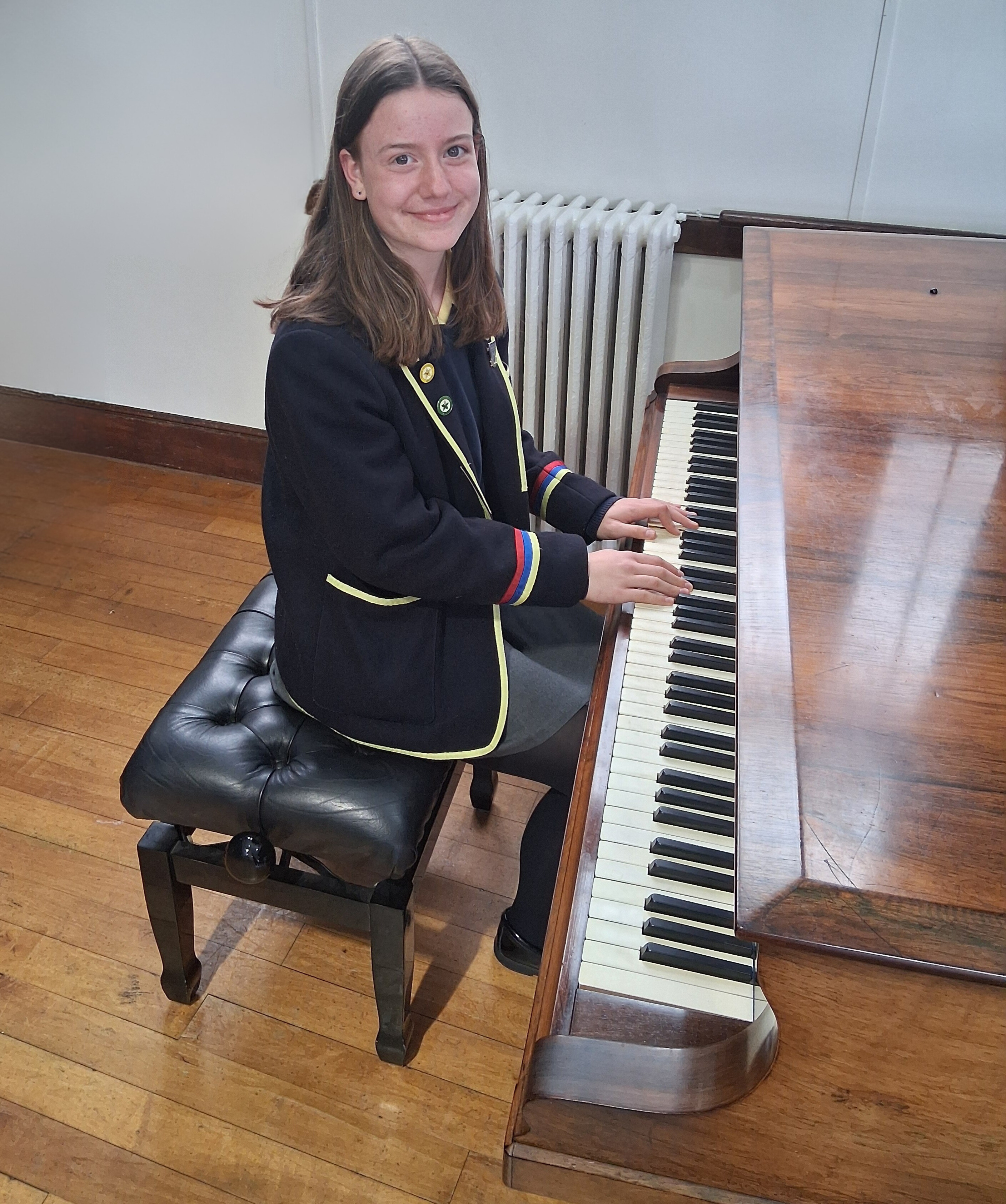
Today I want to talk to you about something that has played a huge role in my life from a young age, music. Not just the kind of music you listen and sing to, but also the music you can play, feel and appreciate. First of all here is a little bit about my own musical journey…
I started piano lessons when I was 6 years old. In Primary 5, I picked up the clarinet. Since then, I enjoy being part of the school orchestra, show band and other music groups, and this year I am taking Advanced Higher Music.
Learning an instrument isn’t always easy, it takes lots of patience, practice and resilience. Through music I’ve learned that progress isn’t always instant and making mistakes is part of the journey. Those lessons have helped me in my life outside of music.
Music brings me a lot of enjoyment, it also helps me to relax and switch off. However music can benefit everyone and it can have a remarkable impact on your mental health.
Firstly, music can improve your sleep, it lowers your stress hormones and helps to calm your nervous system.
Music can also help minimise anxiety, depression and even PTSD symptoms. Music gives us an outlet to express our emotions. But what is it about music that makes it so powerful? Sometimes it's more than the melody of a song we can connect with, it's the lyrics too. Lyrics can capture how we are feeling in ways that we often cannot express out loud. It gives us something to relate to and allows us to feel seen.
According to Harvard Medical School, music activates many parts of the brain, including those responsible for memory, emotions and motor control. This means that when we interact with music, we are actually giving our brain a workout. It can even help people with conditions such as Dementia to improve coordination and memory.
Have you ever heard a song from years ago that transports you back to a specific time of your life? That's because music is closely linked to memory which is why it can also help people with Dementia. A simple tune can bring back feelings, people and memories.
Music also helps to release dopamine, the ‘feel good’ hormone that can boost motivation, concentration and happiness, helping to improve your overall mood and alleviate stress When we are feeling overwhelmed, even listening to a song for a couple minutes can reset our brain and, can even lower our heart rate - as studies show that music can actually synchronize with our brainwaves and enable us to feel calm.
Did you know that music can be so impactful that it can reduce physical pain in hospital patients and some doctors even prescribe music as a form of therapy.
To me, one of the biggest benefits of music is it allows us to connect with one another. Whether you play in a band, sing in a choir or even have the same favourite singer as someone else, music helps to create friendships.
Music also empowers us. Especially for women and girls, music provides us with a safe space where we can express ourselves and build confidence. Whether it’s through writing a song, performing or simply listening, music can remind us of our strength. Many female musicians have used their music to speak up and challenge stereotypes to create positive change in the world.
But music doesn’t just help us understand ourselves, it also allows us to understand others better too. Listening to music opens our minds up to stories we might not otherwise relate to. It allows us to step into the shoes of someone else even just for a few minutes.
Another wonderful benefit of music is that music exists from all across the world. Every culture uses music to tell stories, celebrate and connect in their own way. Music brings people together.
So how can we incorporate music into our lives?
You don’t need to play 5 musical instruments or sing in a choir to benefit from music. Simply listening to and enjoying music can benefit us all.
Here are some small things you can try:
Whatever it is, make space for music in your life. In our busy schedules it's easy to forget to take time for relaxation and hobbies. Music gives us this.
So no matter whether you’re someone who lives and breathes music or someone who enjoys listening to Taylor Swift, remember that music has power. It has the ability to help you form new friendships, improve your mental wellbeing and it also acts as a friendly reminder that it is okay to slow down and take some time for yourself.
So the next time you need a break instead of reaching for your phone, try listening to or playing some music, and you might be surprised how much better you feel. Taking a few moments a day to let music into your life might not change everything, but it might just change your day.
I hope you can all find a new way of enjoying music.